Throughout this past month of my internship, I have had some incredible experiences and adventures while in San Diego. I have been embracing the California culture and lifestyle by going to the beach every weekend, either to play volleyball or to relax and swim in the warm water. Also, my dad and brother came to visit me here, and we went sailing in Mission Bay and visited the San Diego Zoo. I absolutely love it here; both the biotech career opportunities and the fun atmosphere have been such great things to experience.
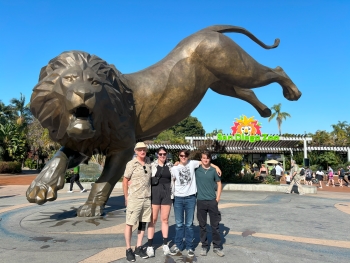
One of the many projects I have been working on involves learning the process of a genetic engineering procedure known as Gibson & HiFi Assembly. This method is a cutting edge technology that can join up to 6 large DNA fragments seamlessly, which is crucial for creating DNA sequences customized for specific purposes. When researching this procedure, I heavily relied on my previous experiences researching for Cornell’s biology classes and was able to learn this technique quickly and efficiently due to training under the time constraint of the block plan.
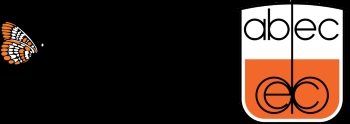
New England Biolabs, the company who created the HiFi Gibson Assembly technique
For ChakraTech, our initial goal is to develop a proof of concept experiment to prove that bacteria can produce the correct biodegradable plastic polymer that we want. Designing experiments to help prove this has been especially tricky as I have never done this before in my academic career. I have encountered quite a few challenges, such as researching procedures I have never done before and looking up information and concepts that are completely unfamiliar to me. However, my supervisor Dr. Ravi Chawla has been able to help me overcome misconceptions and keep me on the right track to success.
There is an AI software known as potato.ai which is capable of generating experimental procedures to match any prompt you choose. We learned in the workshop seminar with Nick Edwards, a distinguished professional in the field of AI, that it takes in information from papers published online and compiles them into a procedure to fit a specific request. It has been incredibly useful to me in my work on our research project, and I believe it will be very successful beyond its beta. However, it is important to note that AI should not be treated as a cure-all for scientific problems. Instead, it should be used as a tool to guide research rather than dictate it, and I have made sure to stick by this rule while working with the software.
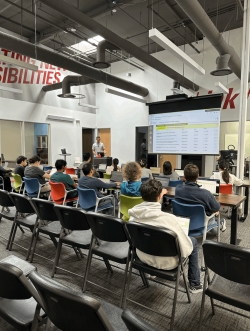
Potato AI seminar hosted by ChakraTech at Aquillius
Another challenge I have had to face when setting up our proof of concept research is knowing which lab materials to order. I was given free reign over which products I would need for my initial research, which was a daunting task as I had never worked with some of the equipment before. However, through careful research I was able to build a catalog of all the materials we needed, such as LB broth, salts for the Mineral Media, and gram staining equipment. Despite the pressure, I was able to compile an accurate and detailed list to send to the company Avantor to price match our order. Another issue with the materials list is ordering the correct plasmid for our research. I had to learn how to negotiate and compare prices for the DNA samples we needed, and I am on track to getting a good deal for the plasmid we need to order.
The Biocom conference in La Jolla is a gathering of various vendors and companies to help promote their products to other research scientists. It was an incredible experience, and I learned so much about various different machines and equipment that could be useful to us in our preliminary research. Building connections with these companies will be super useful as they have pointed me in the direction of potential internship jobs for next summer, which is incredibly helpful as I would like to intern at a genetics company in California next year. Although entering the event with seasoned scientists and business professionals was intimidating, my fellow interns and I pushed through it and made some great connections that evening with companies such as Cytiva, Thermofisher Scientific, and Eppendorf.
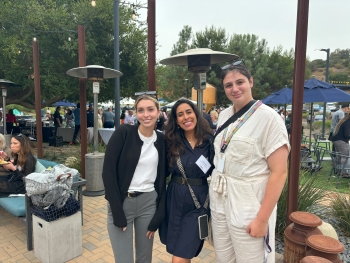
Emit, Vanessa and I at the Biocom Conference in La Jolla
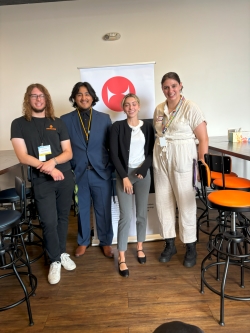
Me and fellow interns at the Coffee Networking Social hosted by Aquillius
Throughout my experiences in San Diego, I have gained a deeper understanding of what it truly means to be a research scientist. I am having so much fun learning about all the different lab techniques, machinery, and concepts in biotechnology, and this has solidified my interest in pursuing a career in this field. More specifically, I would like to work in genetics, such as gene editing or plasmid design. The vibrant atmosphere and wonderful culture of California has left a lasting impression on me. Whether it was relaxing at the beach or learning fascinating subjects with fellow scientists, I have fallen in love with the unique balance of innovation and recreation. As I am considering potential options in my future, I am seriously considering attending graduate school for a doctorate in California, with schools in the Bay Area and San Diego being top contenders.
With my materials list completed and the order form sent in, I look forward to sharing my lab experiences with you all in these upcoming few weeks. Stay tuned for more insights into the world of California’s biotech industry!